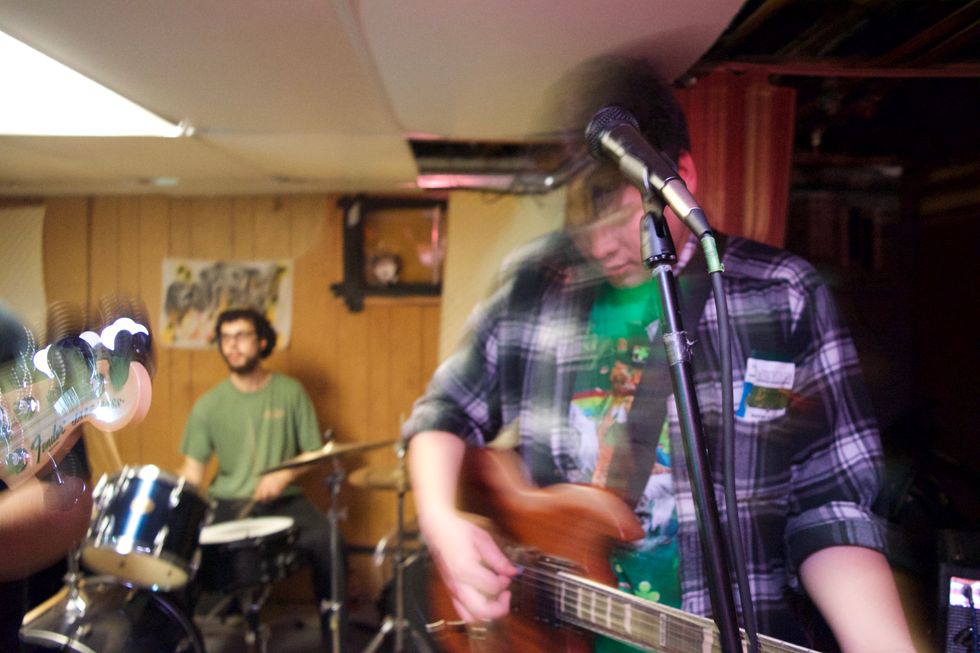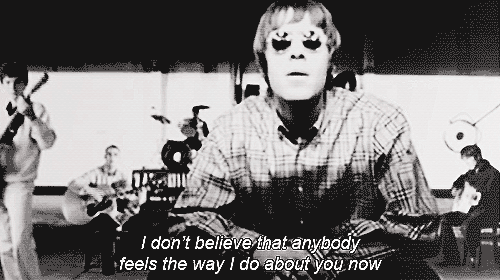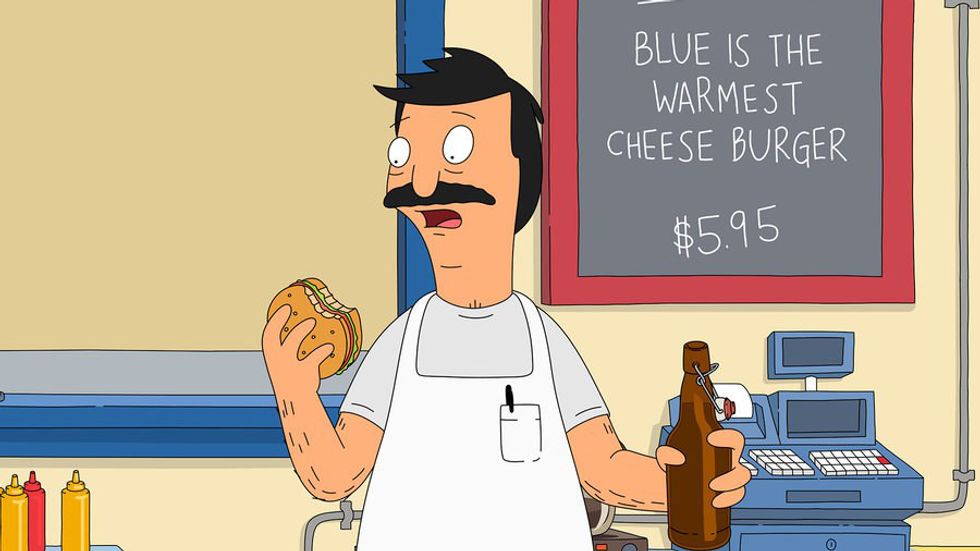Flaunting myself as a fan of rock music and all of its subgenres as long as I have - guess who's become the go-to guy for all of the world's most obvious questions about my favorite genre? The less egotistical way to put it - I constantly get asked why I enjoy "that music with the screaming" or if I even understand any of the lyrics. But sometimes I get asked something interesting, what I think - after being in the "scene" for awhile - about whether or not rock and roll is truly dead.
To truly answer this, we have to answer a different question first - why is rock music considered by even Gene Simmons as "dead" or "dying?" The answer is quite simple really if we think about it. I'm no coroner, but the reason rock music is "dying," is none other than the same culprit that somehow brought back overalls and the color orange - nostalgia.
You heard me, nostalgia. The reason that your new favorite underground rock band can't get popular is because of your addiction to 'Wonderwall" and your original vinyl pressing of "Nevermind." Now, you think I'm kidding, don't you? Let's check the iTunes rock charts quick - shall we?
Remember Oasis? Unfortunately, we all do...
At the time of writing this article, AC/DC holds the #1 spot on the top rock songs chart, along with the #3, 4, 6, 11, 14, 15, and 19 spots on the 20 song chart. And yes, two of those songs are the same exact version of "Thunderstruck" - but one is on the band's "Complete Collection" record. The legendary high-pitched artist is joined by none other than Journey's "Don't Stop Believin'" at 12, Queen's "Bohemian Rhapsody" at 13, Led Zeppelin's "Immigrant Song" at 17, and Metallica's "Enter Sandman" at 20. I'm not going to talk badly of any of these legendary songs, but why are they sitting so high on the current iTunes rock chart? To add salt to the wound, the list shows the top rock songs that people are buying off of the Apple platform, not streaming. People are paying more money for songs that are 20-30 years old than they are for music from new up and coming bands. And before you ask, there is not one artist on this list that doesn't play arenas.
The international mainstream rock scene has not substantially changed since Metallica's "Black Album" - but why is our favorite music genre bent on rebellion so static and stubborn? Are you one of the many people that has that one parent who was a huge rock groupie back in the day and introduced you to all of their favorite records they heard back when they were kids? Take this all-to-familiar scenario and apply it to the entire rock music industry, across every generation since the British Invasion in the '60s.
I don't care what anyone says - Black Sabbath was the greatest thing to ever come out of the British Invasion. Bar none.
If you ask any random person about the greatest rock record ever made - it's most often an album that's nearing it's 20th anniversary. If not, it's the entire Beatles' discography. Of course there is nothing wrong with that - it's just very disheartening how often this is the case. Mainstream rock fans have become conditioned to see the "classics" as the best records ever made - and nothing contemporary will ever change their minds. They're right however when they say the most infuriating cliché in existence, "they don't make music like they used to." But that's a good thing! That's how music evolves and thrives - by taking risks and embarking on new and exciting ventures. For the music we live and bleed to survive, we need to stop living in the shadows of the older rock n' roll snobs and their opinions.
"Rock music is most definitely not dead, but in the eyes of radio and mainstream culture - it's been dead and buried..."
When we let the favorites of our elders determine our own, how can we possibly decide what albums we put on repeat? What new CDs we buy? What new and exciting bands we see live? Rock music is most definitely not dead, but in the eyes of radio and mainstream culture - it's been dead and buried since the Strokes and The White Stripes were last popular. It's the underground rock, metal, and punk scenes that keep our rebellious culture alive. The bands in the shadows of the classics, the children of the night, what music they make.
Unawares to the rest of the world, the underground rock scene has been growing and expanding like none other. It's honestly the best kept secret in all of music. More subgenres and unique sounds have been developed in such a short period it's truly astounding. The underground is a community that is more accepting and friendly than any of it's peers, and has become so big as of late it's only a matter of time before it explodes and takes over the mainstream once again. Wielding the power of groundbreaking new sounds and the cult followings of hundreds of thousands - the underground rock scene is undoubtedly the future and rebirth of the rock music we all know and love.




































